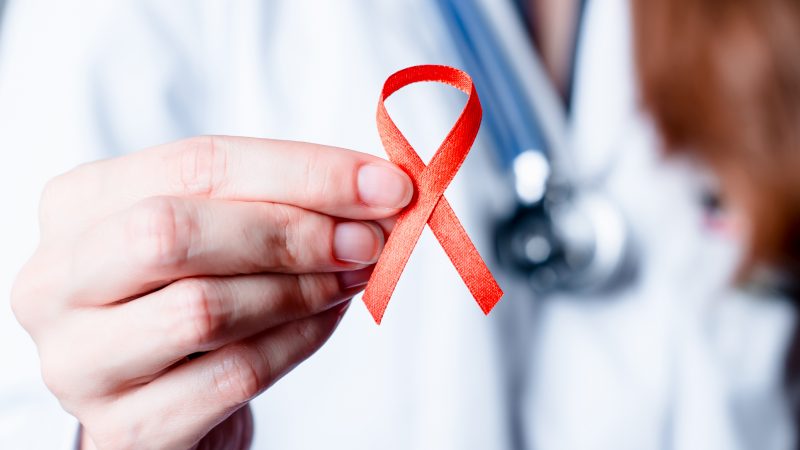
Today, across the globe, millions will mark World AIDS Day to remember those lives painfully cut short and recognise the impact HIV/AIDS still has on the 38 million people living with HIV. On the 32nd World AIDS Day, we have reasons to be hopeful: we have a once-in-a-lifetime opportunity to end new HIV transmissions here in the UK with the publication of a new report giving a roadmap to get us there.
In the UK, we’ve made big progress in the fight against HIV. Falling cases have been most notable among gay and bisexual men, with new diagnoses being nearly halved since 2014. It is Labour’s aim that every community affected by HIV has the same results.
The treatment available now means someone diagnosed early with HIV can expect a normal and healthy life, and can’t pass on the virus – yes, can’t. Alongside the introduction of the highly effective anti-HIV drug PrEP – which Labour fought tooth and nail for the government to finally allow our NHS staff to provide – this has resulted in the UK achieving the global UNAIDS target for a second consecutive year. 94% of those living with HIV are diagnosed, with 98% of those on HIV treatment and 97% of people on treatment unable to pass it on.
A national commission looking at how to end the epidemic has today published its recommendations to the government. My colleague Wes Streeting MP served on the HIV Commission since its inception. It was led by former Lloyds of London Chair, Dame Inga Beale. Alongside them were leading experts from science, community activists, people living with HIV including ex-Wales international Gareth Thomas, and former Tory minister for public health Steve Brine MP. Together they have set an important path – if their message is headed, this country could be the first in the world to have no new cases of HIV. An opportunity we cannot miss.
The government has committed to ending the HIV epidemic in the UK by 2030, something that Labour supports. But while it was a Tory Health Secretary that made this pledge, I want it to be a Labour government that delivers it. The scale of the challenge to stop new HIV transmissions is huge, yet it can be done.
There are still around 6,600 people living with HIV who are undiagnosed in the UK and 42% of people diagnosed with HIV in 2019 for their diagnosis at a clinically late stage. The HIV Commission makes clear that to reach the 2030 target, we need to test, test, test.
Wherever someone has a blood test, testing for HIV also should become standard practice. Even in places where it should be happening right now, it’s not. This is a problem of the Tories’ own making – a legacy of the Andrew Lansley 2012 Health and Social Act; the budget for HIV testing is with local government, but invariably the places testing needs to happen are funded by clinical commissioning groups. It is time the government corrected its own failures.
Our frontline NHS and local government services are crucial in this mission. Yet public health budgets have been slashed by Tory Chancellors since 2014 and despite the recent uplift, the grant for local councils in 2020/21 was 22% lower per head in real terms. According to the Kings Fund, the government needs to inject £1bn to simply restore public health spending to previous levels. Nothing was done to restore this funding in last week’s mini budget.
Despite having their hands tied by these financial pressures, I’m proud that it’s Labour mayors and Labour administrations that are showing leadership in the fight against HIV.
On Sadiq Khan’s watch, new cases of HIV in the capital have fallen. In Wales, health minister Vaughan Gething was not only the first UK health minister to pledge to end transmission by 2030, his decision not to cap access to PrEP – unlike until recently in England – has resulted in zero new cases of HIV among those taking PrEP. Marvin Rees, mayor of Bristol, ensured his local area was the first to be ready to roll out PrEP and his deputy Asher Craig is playing an important part in taking the message of PrEP to those less likely to know about the benefits of PrEP, including among Black African women and men.
We mustn’t forget that while in government Labour laid the foundations to turn the tide against HIV – something we can be proud of. From slashing VAT on condoms to introducing the Equality Act that gives legal protections to people living with HIV to prevent discrimination when accessing services. But our job is unfinished.
Two years ago, my brave colleague, Lloyd Russell-Moyle made history by publicly announcing he is living with HIV during an emotional debate in parliament. In his speech, Lloyd had this powerful plea: “We have the ability to end new HIV transmissions, as well as to end stigma and discrimination – not only here, but globally. I hope we can all make that our mission.”
Labour’s commitment to delivering social justice is at the very soul of our party, and Keir Starmer’s leadership. We will hold this government to their commitments, pressure them to do everything necessary to ensure we are the first country to end transmissions and publish their long-awaited HIV Action Plan by Summer 2021, and be ready – at any stage – to take on this important task. I am determined that it will be a Labour government that makes history and delivers on this mission to end the HIV epidemic.




More from LabourList
‘Labour council candidates – it’s tough, but all is not lost’
‘Labour won’t stop the far right by changing leaders — only by proving what the left can deliver’
‘Cutting Welsh university funding would be economic vandalism, not reform’